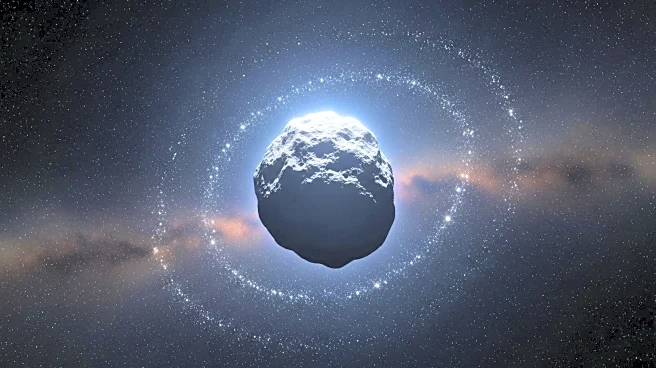What is the story about?
What's Happening?
Scientists analyzing samples from asteroid Bennu have discovered that it contains stardust older than the solar system itself. The samples, collected by NASA's OSIRIS-REx spacecraft, include presolar grains that formed before the sun existed. These findings provide a glimpse into the early solar system's materials and processes. The research highlights Bennu as a time capsule, preserving ancient cosmic material that offers insights into the solar system's formation and evolution. The studies reveal that Bennu's parent asteroid underwent significant transformations, including reactions with water and multiple impact events.
Why It's Important?
The discovery of presolar grains in Bennu's samples is significant for understanding the solar system's origins. These grains offer a rare opportunity to study material from the early solar system, providing clues about the conditions and processes that shaped planetary formation. The findings also enhance our understanding of asteroids as carriers of ancient cosmic material, which can inform models of solar system evolution. This research underscores the importance of sample-return missions in advancing planetary science and offers potential insights into the building blocks of life.
Beyond the Headlines
The presence of stardust in Bennu's samples raises questions about the distribution and preservation of ancient cosmic material in the solar system. The research highlights the complex history of asteroids, which can undergo significant changes over time. Understanding these processes can inform future exploration and utilization of asteroids, particularly in the context of resource extraction and planetary defense. The study also emphasizes the need for continued exploration of asteroids to uncover more about the solar system's history and potential resources.
















